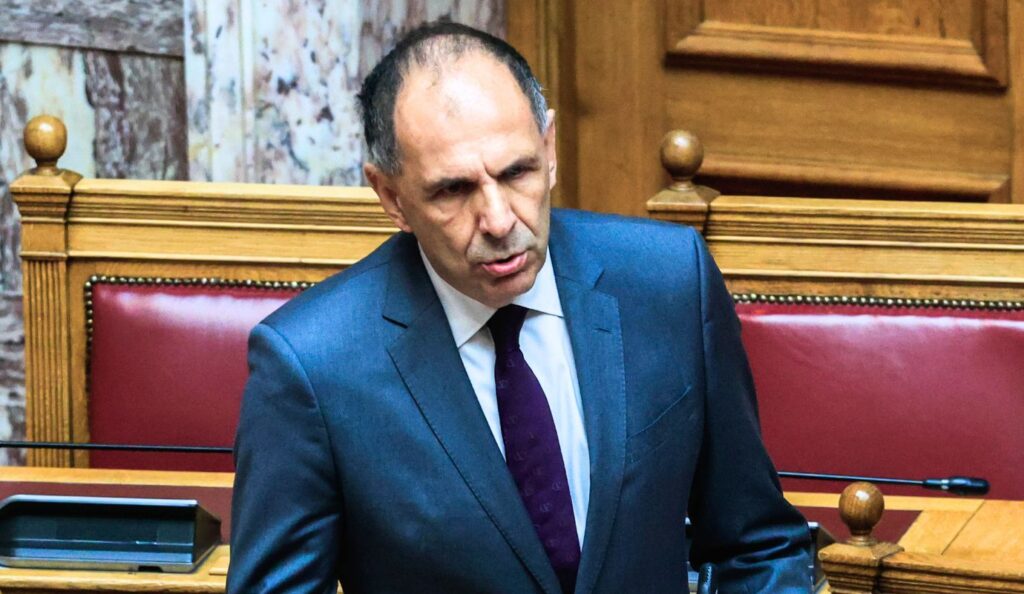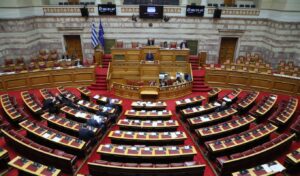Foreign Minister Georgios Gerapetritis is expected to travel to Libya within days for a long-planned visit, as he confirmed yesterday in Parliament while responding to a topical question from independent MP Marios Salmas.
When Gerapetritis will visit Libya – What happens with the Turkish-Libyan memorandum
According to all indications, Sunday appears to be the most likely date, though this has not yet been officially confirmed by the Foreign Ministry. In the coming days, however, the illegal Turkish-Libyan memorandum is likely to be ratified by the House of Representatives in Benghazi, which is controlled by General Khalifa Haftar’s government. Should this occur, the atmosphere surrounding Foreign Minister Georgios Gerapetritis’ potential visit to Libya would be particularly cold, with uncertain outcomes.
Gerapetritis’ Libya visit: Maritime zones and migration on the table
Mr. Gerapetritis’ goal, however, is to restore Greece’s diplomatic relations with Eastern Libya’s government to their previous state. As he argued yesterday in Parliament, “we have established our diplomatic channels. I personally spoke last week with the President of Eastern Libya’s Parliament specifically about these issues, to express Greece’s position regarding the Turkish-Libyan memorandum.”
Additionally, the Foreign Minister reiterated that Greece advocates for the delimitation of maritime zones based on the Law of the Sea Convention: “Greece explicitly and consistently supports good neighborly relations with Libya, with whom we share historical ties. For this reason, we have called on Libya to begin discussions regarding maritime zone delimitation. Greece is indeed a neighboring country to Libya, and our pursuit will be to achieve a delimitation solution that relies purely and exclusively on the Law of the Sea Convention.” According to Mr. Gerapetritis, the European Union supports Greece on this matter, as evidenced by the European Council’s joint communiqué.
Regarding Turkey’s reactions, Mr. Gerapetritis, speaking yesterday in Parliament, stated that Greece exercises its sovereign rights in the field. Moreover, when the government announced the Maritime Spatial Planning map, which is part of European legislation, it expected reactions. “Maritime Planning is, Mr. MP, European legislation. Therefore, under this interpretation, it is expected that in certain cases there will be reactions from neighboring countries,” he said characteristically.
Concerning the increase in migration flows, the Foreign Minister emphasized they pose a threat not only to Greece but to all of Europe, noting that Italy also faces increased illegal migrant trafficking from Western Libya. The issue of rising illegal migration flows from Libya will be discussed today by Greece’s top diplomat with Commissioner for Home Affairs and Migration Magnus Brunner, who is visiting our country for talks on this matter before traveling to Libya next Tuesday.




